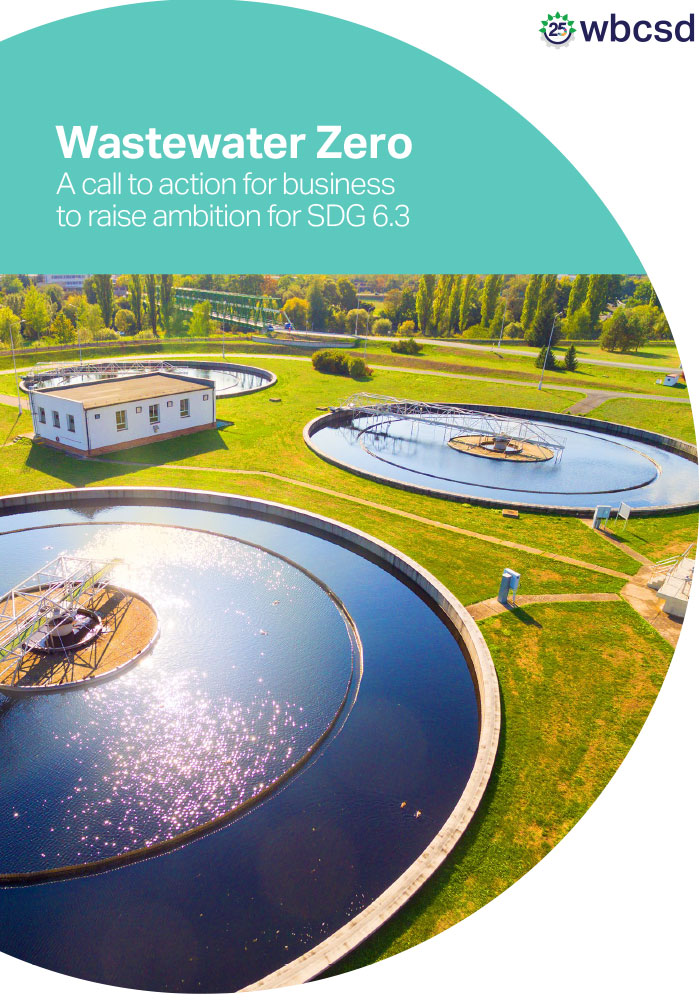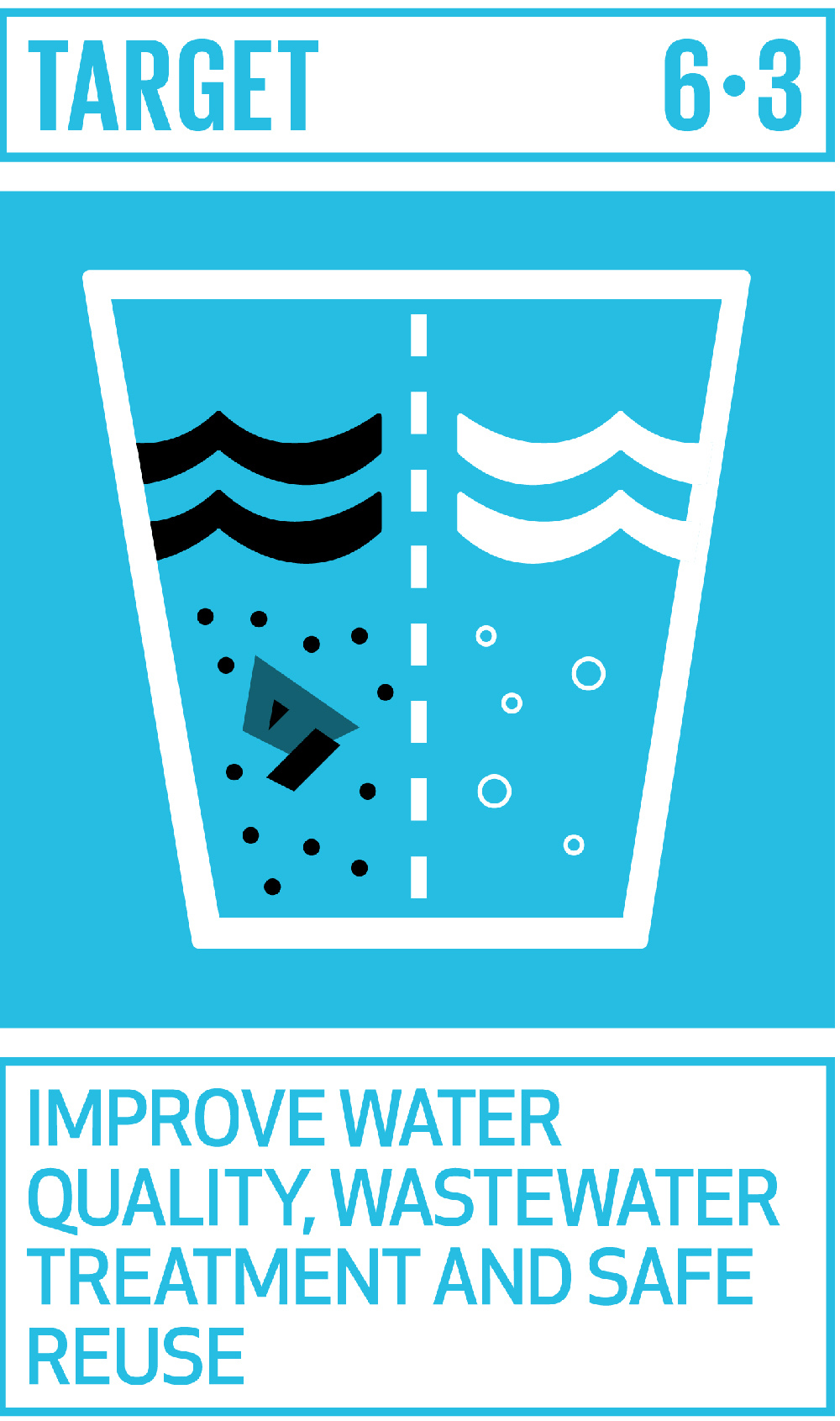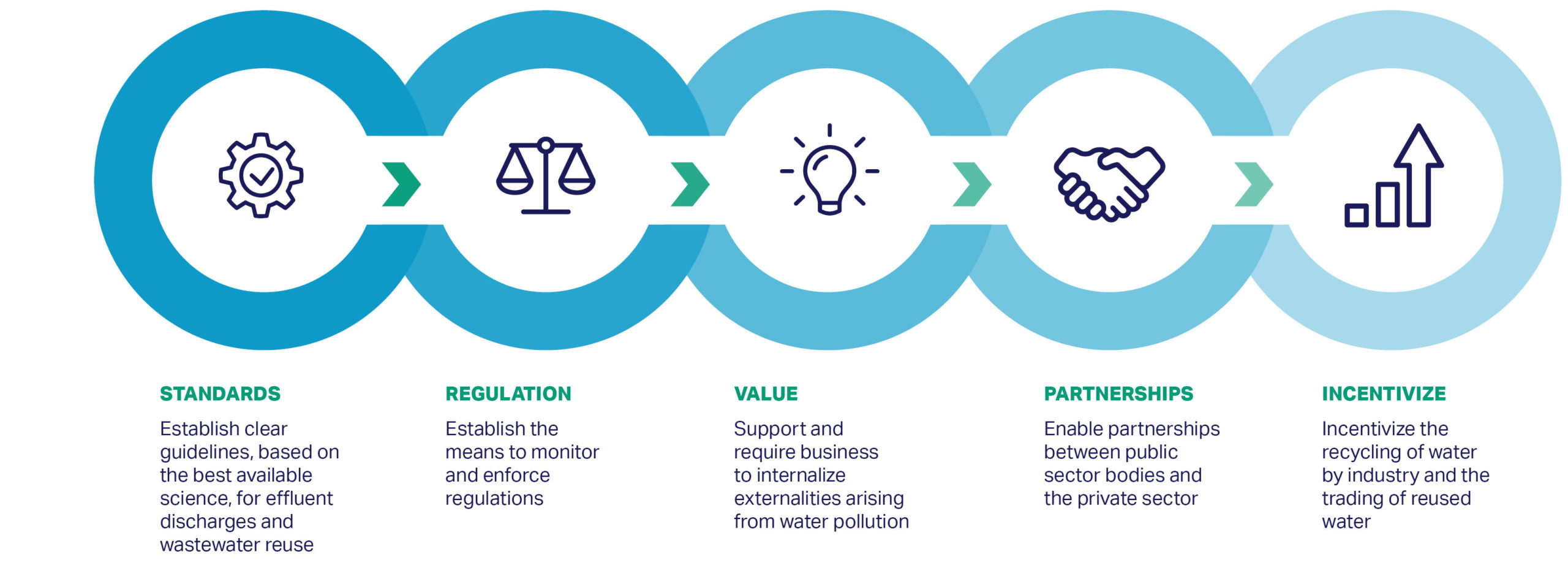
Wastewater Zero
The urgency for action on industrial wastewater pollution

We are in the decade of action to deliver the SDGs: we must accelerate progress towards global climate targets, halt biodiversity loss and ensure enough water is readily available for domestic, industrial, and agricultural requirements. Accelerating action on industrial wastewater treatment and reuse can support all three of these interdependent objectives. For more information read WBCSD’s report on Wastewater Zero: A call to action for business to raise ambition for SDG 6.3.
Watch the short video below for an overview of the Wastewater Zero ambition for business.
Industrial wastewater pollution impacts nature, climate and the economy

SDG 6.3 – Water quality and wastewater

Sustainable Development Goal (SDG) 6 aims to ensure the availability and sustainable management of water and sanitation for all. SDG 6.3 focuses on water quality: By 2030, improve water quality by reducing pollution, eliminating dumping and minimizing release of hazardous chemicals and materials, halving the proportion of untreated wastewater and substantially increasing recycling and safe reuse globally. The wastewater zero report addresses the role of business in meeting SDG 6.3.
Call to action for policymakers

Business commitment to wastewater zero

Zero pollution
Treating wastewater so that the discharge has no negative impact* on the receiving water body.

Zero freshwater impact
Treating wastewater so that it can be recycled or reused to replace freshwater withdrawals in water scarce areas.

Low-carbon treatment
Accounting for all GHG emissions related to wastewater, and adopting wastewater treatment processes that reduce GHG emissions and net energy requirements, where feasible.
* “No negative impact” to be assessed through compliance initially and through using science-based target setting in the long term.

Copyright © 2024
World Business Council for Sustainable Development
All rights reserved | Privacy Policy